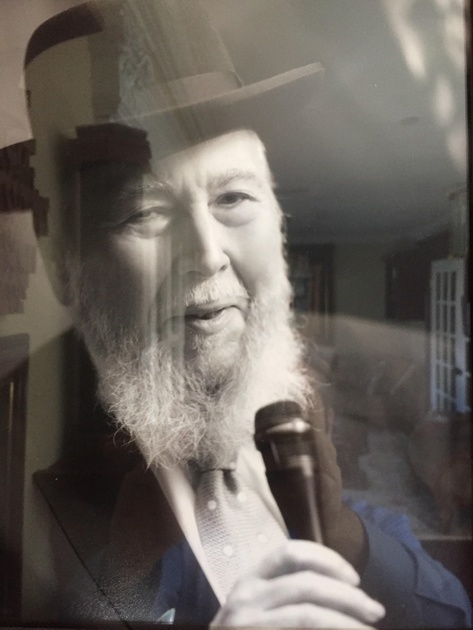
Ч•ЦјЧһЦҙЧҷ ЧўЦёЧ‘Ц°Ч“ЦҙЧҷЧ Ц·Чҹ ЧӣЦјЦҙЧӘЦ°ЧЁЦөЧҷ Ч—Ч•ЦјЧһЦ°ЧЁЦөЧҷ? Ч•Ц°Ч”ЦёЧҗ ЧӘЦјЦ·Ч Ц°ЧҷЦёЧҗ: ЧңЦ°ЧўЧ•Ц№ЧңЦёЧқ Ч”ЦІЧңЦёЧӣЦёЧ” ЧӣЦјЦ°Ч‘ЦөЧҷЧӘ Ч”ЦҙЧңЦјЦөЧң, Ч•Ц°Ч”ЦёЧЁЧ•Ц№ЧҰЦ¶Ч” ЧңЦ·ЧўЦІЧ©ЧӮЧ•Ц№ЧӘ ЧӣЦјЦ°Ч“ЦҙЧ‘Ц°ЧЁЦөЧҷ Ч‘ЦјЦөЧҷЧӘ Ч©ЧҒЦ·ЧһЦјЦ·ЧҗЧҷ ЧўЧ•Ц№Ч©ЧӮЦ¶Ч”, ЧӣЦјЦ°Ч“ЦҙЧ‘Ц°ЧЁЦөЧҷ Ч‘ЦјЦөЧҷЧӘ Ч”ЦҙЧңЦјЦөЧң ЧўЧ•Ц№Ч©ЧӮЦ¶Ч”. ЧһЦҙЧ§ЦјЧ•ЦјЧңЦјЦөЧҷ Ч‘ЦјЦөЧҷЧӘ Ч©ЧҒЦ·ЧһЦјЦ·ЧҗЧҷ Ч•ЦјЧһЦҙЧ§ЦјЧ•ЦјЧңЦјЦөЧҷ Ч‘ЦјЦөЧҷЧӘ Ч”ЦҙЧңЦјЦөЧң — ЧЁЦёЧ©ЧҒЦёЧў. ЧһЦөЧ—Ч•ЦјЧһЦ°ЧЁЦөЧҷ Ч‘ЦјЦөЧҷЧӘ Ч©ЧҒЦ·ЧһЦјЦ·ЧҗЧҷ Ч•ЦјЧһЦөЧ—Ч•ЦјЧһЦ°ЧЁЦөЧҷ Ч‘ЦјЦөЧҷЧӘ Ч”ЦҙЧңЦјЦөЧң — ЧўЦёЧңЦёЧҷЧ• Ч”Ц·ЧӣЦјЦёЧӘЧ•ЦјЧ‘ ЧҗЧ•Ц№ЧһЦөЧЁ: ЧҙЧ”Ц·ЧӣЦјЦ°ЧЎЦҙЧҷЧң Ч‘ЦјЦ°Ч—Ц№Ч©ЧҒЦ¶ЧҡЦ° Ч”Ч•Ц№ЧңЦөЧҡЦ°Чҙ. ЧҗЦ¶ЧңЦјЦёЧҗ, ЧҗЦҙЧҷ ЧӣЦјЦ°Ч‘ЦөЧҷЧӘ Ч©ЧҒЦ·ЧһЦјЦ·ЧҗЧҷ ЧӣЦјЦ°Ч§Ч•ЦјЧңЦјЦөЧҷЧ”Ч•Ц№Чҹ Ч•ЦјЧӣЦ°Ч—Ч•ЦјЧһЦ°ЧЁЦөЧҷЧ”Ч•Ц№Чҹ, ЧҗЦҙЧҷ ЧӣЦјЦ°Ч‘ЦөЧҷЧӘ Ч”ЦҙЧңЦјЦөЧң ЧӣЦјЦ°Ч§Ч•ЦјЧңЦјЦөЧҷЧ”Ч•Ц№Чҹ Ч•ЦјЧӣЦ°Ч—Ч•ЦјЧһЦ°ЧЁЦөЧҷЧ”Ч•Ц№Чҹ.
The Gemara poses a question: But do we adopt the respective stringencies of two authorities who disagree on a series of issues? Wasn’t it taught in a baraita: The halakha is always in accordance with the opinion of Beit Hillel, but one who wishes to act in accordance with the opinion of Beit Shammai may do so, and one who wishes to act in accordance with the opinion of Beit Hillel may do so. If he wishes to adopt both the leniencies of Beit Shammai and also the leniencies of Beit Hillel, he is a wicked person. And if he wishes to adopt both the stringencies of Beit Shammai and also the stringencies of Beit Hillel, with regard to him the verse states: “The fool walks in darkness” (Ecclesiastes 2:14). Rather, he should act either in accordance with Beit Shammai, following both their leniencies and their stringencies, or in accordance with Beit Hillel, following both their leniencies and their stringencies.
for Video Shiur click here to listen: Psychology of the DAF Eruvin 6
ЧўЧЁЧ‘Чҷ Ч Ч—Чң ЧӣЧҷ ЧӘЧ©Чҗ Чҗ:ЧӣЧ’
David Solomon Eibeschutz 1751-1813
Ч•Ч”Ч Ч” ЧҗЧЁЧ–"Чң (ЧўЧҷЧЁЧ•Ч‘ЧҷЧҹ Ч•:) ЧһЧ§Ч•ЧңЧҷ Ч‘ЧҷЧӘ Ч©ЧһЧҗЧҷ Ч•ЧһЧ§Ч•ЧңЧҷ Ч‘ЧҷЧӘ Ч”ЧңЧң ЧЁЧ©Чў ЧһЧ—Ч•ЧһЧЁЧҷ Ч‘ЧҷЧӘ Ч©ЧһЧҗЧҷ Ч•ЧһЧ—Ч•ЧһЧЁЧҷ Ч‘ЧҷЧӘ Ч”ЧңЧң ЧўЧңЧҷЧ• Ч”ЧӣЧӘЧ•Ч‘ ЧҗЧ•ЧһЧЁ (Ч§Ч”ЧңЧӘ Ч‘) Ч”ЧӣЧЎЧҷЧң ЧӣЧ•' Ч•ЧӨЧҷЧЁЧ•Ч©Ч• Ч“ЧҗЧЈ Ч©ЧўЧ•Ч©Ч” ЧһЧҰЧ“ Ч“Ч§Ч“Ч•Ч§ Ч©ЧһЧ—ЧһЧҷЧЁ ЧўЧң ЧўЧҰЧһЧ• ЧҗЧӨЧҷЧңЧ• Ч”ЧӣЧҷ ЧҗЧҷЧҹ ЧңЧўЧ©Ч•ЧӘ ЧӣЧҹ Ч“ЧӨЧўЧһЧҷЧқ Ч—Ч•ЧһЧЁЧҗ Ч‘Чҗ ЧңЧҷЧ“Чҷ Ч§Ч•ЧңЧҗ.
It is implied from the Gemara that the reason for it to be considered foolish to follow both stringencies is that sometimes, in various halakhic circumstances, what appears to be a stringency actually will be a leniency, as the Gemara illustrates later on Daf 7 in regarding to the missing amount of vertebrae needed to make the animal a tereifa versus needed to make a body a corpse.
But perhaps the Gemara is hinting at another idea, which is that while technically it may be possible to always err on the side of safety and follow all strict opinions, when one does not choose a teacher or school of thought to consistently follow, then one is following neither. Meaning to say, ideologically each path in Torah offers more than just permitted and forbidden. Torah is a way of life, and the fulfillment or abstention from every act influences character and outlook. Therefore, one cannot truly follow both opinions by being machmir, because the experience is also to live inside the boundaries of that particular opinion, and to experience the permitted as well as the forbidden.
In a broader sense, a colleague of mine, Dr. Nachum Klafter once pointed out, there is no chumrah that does not involve a kulah in the sense that it always entail a loss of something else. Not to say one shouldn’t do it, just to say that one must be realistic about the consequences.
Examples:
You decide to make Shabbos early. Of course that is a good thing. However, perhaps you will be irritable because you rushed. Or you are a machmir regarding some food or drink and abstain because some opinions say you should not eat or drink it. You will likely come to a wedding or gathering of friends and family where your distance will be felt because you will not be able to participate fully. It is not that the chumrah is unworthy, it is just that one should not be naive about any potential effects or losses from the Chumrah.
for Video Shiur click here to listen: Psychology of the DAF Eruvin 6
Translations Courtesy of Sefaria
Photo Abba Mari Rav Chaim Feuerman, Ed.D. ZT"L Leiyluy Nishmaso
Translations Courtesy of Sefaria, except when, sometimes, I disagree with the translation ![]()
If you liked this, you might enjoy my Relationship Communications Guide. Click on the link above.
Rabbi Simcha Feuerman, Rabbi Simcha Feuerman, LCSW-R, DHL is a psychotherapist who works with high conflict couples and families. He can be reached via email at simchafeuerman@gmail.com
 Previous
Previous

